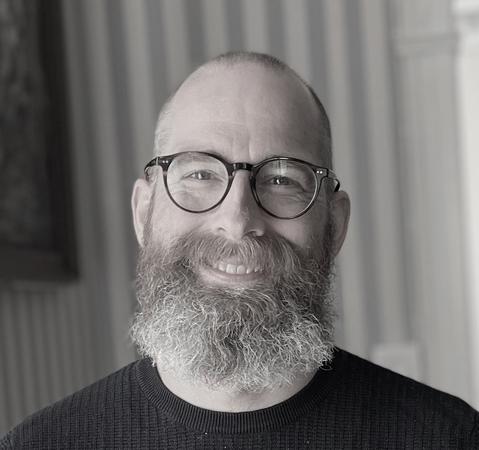 People & Culture
People & CultureConference50min
A Developer's Search for Meaning: Thriving as AI Transforms Our World
This presentation examines how Java developers adapt their professional identity as AI agents take over coding tasks. Blending occupational science and real stories, it explores phases of identity change, offers practical strategies for thriving amid disruption, and encourages developers to find new meaning and value in guiding AI-driven work.

Markus WestergrenUmecon AB

Elma Westergren
talkDetail.whenAndWhere
Thursday, October 9, 09:30-10:20
Room 7
This presentation explores how Java developers and IT professionals are reconstructing their occupational identity as AI agents transform our field.
As AI agents increasingly handle tasks we once considered core to our professional identity, many experienced developers face an existential question: "What makes me valuable as a programmer if AI can code?"
Using occupational science concepts as well as drawing inspiration from Viktor Frankl's seminal work, we'll examine three critical phases developers experience: identity construction (actively rebuilding professional self-concept), identity discrepancy (the gap between past and present roles), and identity disruption (acute crisis of professional worth). Through real developer stories and research insights, we'll reveal how those thriving in this transition find meaning not in circumstances, but in their chosen response to change.
This unique collaboration between a software architect and occupational therapist offers both technical depth and humanistic insight. We'll provide practical strategies for evolving from "code writer" to "AI shepherd," transforming existential anxiety into purposeful occupation.
As AI agents increasingly handle tasks we once considered core to our professional identity, many experienced developers face an existential question: "What makes me valuable as a programmer if AI can code?"
Using occupational science concepts as well as drawing inspiration from Viktor Frankl's seminal work, we'll examine three critical phases developers experience: identity construction (actively rebuilding professional self-concept), identity discrepancy (the gap between past and present roles), and identity disruption (acute crisis of professional worth). Through real developer stories and research insights, we'll reveal how those thriving in this transition find meaning not in circumstances, but in their chosen response to change.
This unique collaboration between a software architect and occupational therapist offers both technical depth and humanistic insight. We'll provide practical strategies for evolving from "code writer" to "AI shepherd," transforming existential anxiety into purposeful occupation.

Markus Westergren
Markus Westergren is a staff engineer with over 25 years of experience. During his work with large backend projects, Markus has repeatedly seen the big impact code quality has on the outcome of the projects and the careers of the developers working on them. Because of that, Markus focuses on helping professional Java back-end developers write maintainable code so that they become sought-after experts in the software development industry.

Elma Westergren
Elma Westergren is a Registered Occupational Therapist in Sweden with over 7 years of experience specializing in pain management and rehabilitation. Having worked in pain clinics, she has experience helping patients navigate significant life transitions and rebuild their professional identities after health-related disruptions.
Her unique background in occupational identity and work-life transitions provides distinctive insights into how technological disruption affects professional identity and career adaptation. Currently transitioning into interaction design, Elma applies her deep understanding of human occupation and identity to explore how professionals adapt when faced with technological change.
Her focus is on how individuals maintain their sense of purpose and expertise while adapting to technological disruption, making her perspective particularly relevant to understanding AI’s impact on occupational identity. She brings expertise in vocational evaluation, cognitive assessments, and telehealth services, combined with a professional approach that emphasizes evidence-based practice and individualized support.
Driven by core values of integrity, innovation, inclusion, and fairness, Elma is passionate about helping professionals navigate identity shifts and maintain their expertise while embracing technological advancement.
Her unique background in occupational identity and work-life transitions provides distinctive insights into how technological disruption affects professional identity and career adaptation. Currently transitioning into interaction design, Elma applies her deep understanding of human occupation and identity to explore how professionals adapt when faced with technological change.
Her focus is on how individuals maintain their sense of purpose and expertise while adapting to technological disruption, making her perspective particularly relevant to understanding AI’s impact on occupational identity. She brings expertise in vocational evaluation, cognitive assessments, and telehealth services, combined with a professional approach that emphasizes evidence-based practice and individualized support.
Driven by core values of integrity, innovation, inclusion, and fairness, Elma is passionate about helping professionals navigate identity shifts and maintain their expertise while embracing technological advancement.

talkDetail.transcript.loginToSeeTakeaways
talkDetail.transcript.loginToSeeInsights
comments.speakerNotEnabledComments